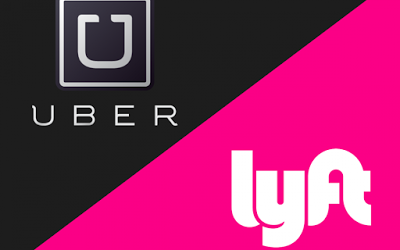Ride sharing services continue to expand throughout the country. These services go to long lengths to acquire new drivers for their companies. They promise a job where you can work where you want, on your schedule. They assure potential drivers that it’s a safe and fun way to use their own car to make real money. Any casual driver interested in becoming a driver for Uber or Lyft should be careful though. Being a rideshare driver comes with many risks, financial as well as physical. Below are considerable risks of driving for Uber or Lyft ride sharing apps that may make you think twice before joining.

Vehicle Breakdowns
Repairs and maintenance are a major hidden cost risk of being a rideshare driver. Your car needs to be in top condition to do business as an Uber or Lyft. Adding the extra miles onto your personal vehicle will mean maintenances will come sooner and may cost more. These repairs can be taxed deducted as business expenses, but to deduct them you also must closely record them. The more you rideshare with your car, the more you’ll have to pay to keep the car on the road. Consider if your car’s repairs will swallow up what profits you make.
Distracted Driving
Rideshare apps make it very easy to be distracted behind the wheel. Even if your phone is in a mount, choosing and taking fares can draw your attention for as much as 15 seconds. Those 15 seconds distracted are enough to cause a serious accident. This could lead to safety issues that could end up getting your ridesharing account deactivated. While the rideshare companies claim their tools are safe, traditional radio communication in taxis is far less distracting. Worse still, since split second timing is needed to win fares, there’s no way around the distraction. If you aren’t careful, a pickup request can leave your car inoperable.
Dangerous Customers
As a rideshare driver, you can find yourself physically threatened by out of control riders. While concerns of abusive drivers have been aired by the media, stories of dangerous riders have remained isolated. Some of these stories come off as strange but harmless, like riders changing clothes before they leave the car. Others are more serious. Drivers have been beaten up and their cars have been destroyed. There is a reason that taxi vehicles have plexiglass partitions to protect the driver. Whether driver or rider, traveling with a stranger can always be a risk.
Insurance
If your insurance company finds out you’re an Uber or Lyft driver, they may cancel your coverage. Your car’s insurance policy is devised for a private use vehicle. This means it doesn’t carry the sort of liability that a taxi or a town car does. Uber and Lyft try to compensate for this. If you have their app on, you are covered by the company. However, when the app’s off, your personal insurance covers you. The problem is many insurance companies won’t accept this compromise. In these cases, if you use the car of business they can deny claims from a Lyft accident attorney or even terminate the policy. Before becoming a driver, read your car’s insurance policy carefully to prevent this.
Losing Money
You also risk not making any money at ride sharing. While Uber and Lyft claim you can make $25 an hour or more in the best places to drive, most likely you’ll make closer to $9 an hour. How much money you make is dependent on when you work and how many other drivers are out at the same time. Rideshares offer different rates depending on the time of day. Even if you only work at the so-called peak rate times, you’ll have to compete with all the other ride-share drivers on the road. Often there isn’t enough riders. Of the money you do make, a percentage goes to the company and then you must cover your expenses. The result is that many drivers lose money in the long run.
There are a lot of risks to becoming a rideshare driver. Your insurance may terminate your policy. Your car will need more repairs. Your likely to crash while using the rideshare app. The riders can put your life at risk. You may not make any money depending on how you work. All of these risks should be considered before joining a rideshare company like Uber or Lyft.
